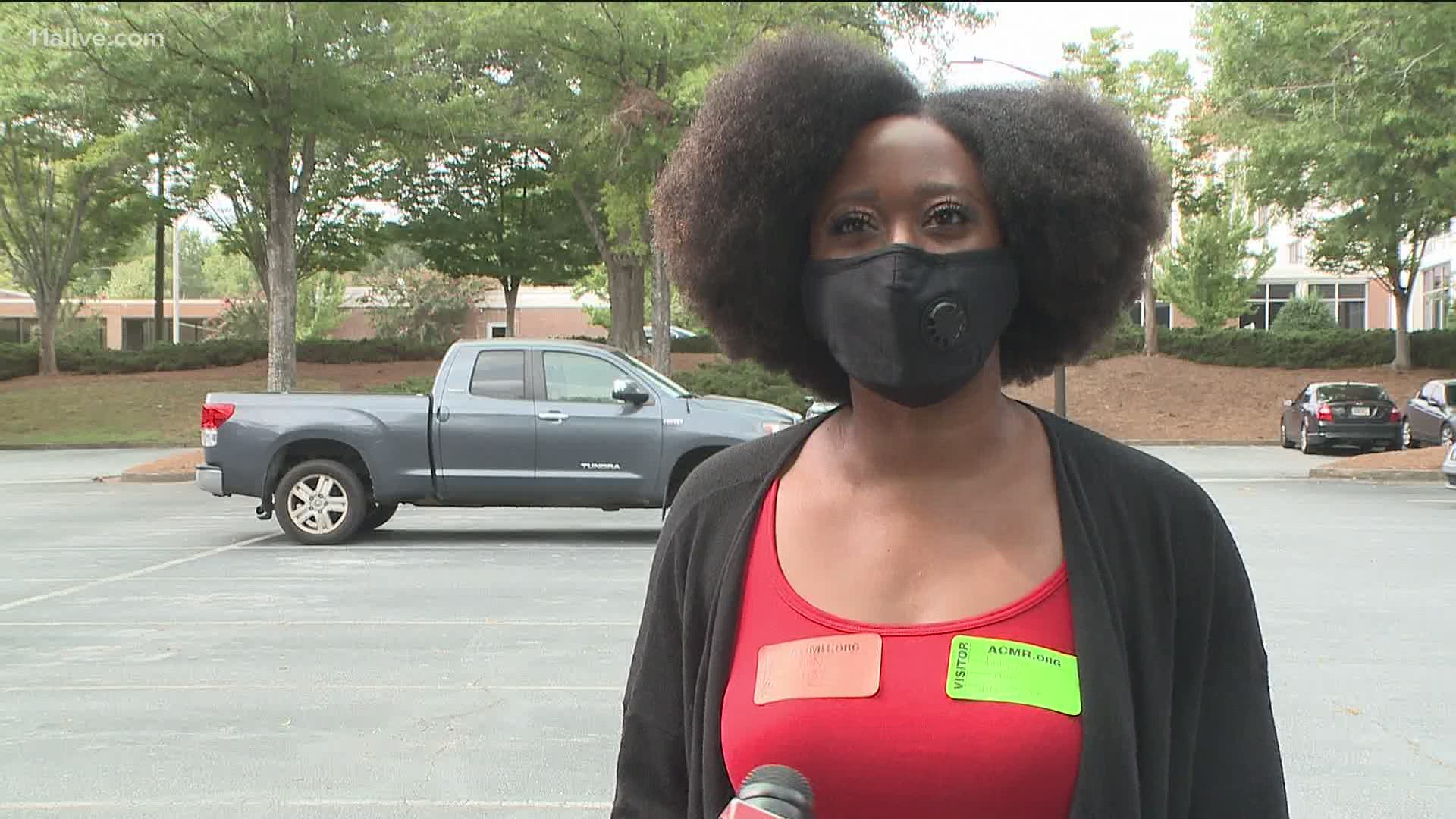ATLANTA — A new NBC News/Survey Monkey online tracking poll shows that most American adults do not trust what President Donald Trump has been saying about a coronavirus vaccine.
According to the survey, 52 percent of adults say they do not trust Trump's comments about a vaccine for COVID-19, while only 26 percent say they do trust the president's comments. Additionally, 20 percent of those surveyed say they are not aware if they trust what he has said about a vaccine.
When those results are broken out by political party, 58 percent of those who either identify as Republican voters or lean Republican say they trust the president's vaccine comments, while 14 percent say they do not and 27 percent say they are not aware of what he has said about the vaccine.
Conversely, 3 percent of Democratic voters and those who lean Democratic say they trust what Trump says about the coronavirus vaccine, while 88 percent say they do not trust the president's statements. Another 9 percent say they are not aware of his comments.
Self-identified independent voters are far more likely to think as Democratic voters are when it comes to trusting the president's words on the virus. In that light, 10 percent of independent voters say they trust Trump's words on a coronavirus vaccine, while 55 percent say they do not. Thirty-four percent say they are not aware of what he has said.
There is more skepticism regarding whether or not voters or their families would get a government-approved vaccine if it became widely available. According to this poll, 39 percent of adults say they would, while 23 percent say they would not and 36 percent say they are not sure.
This is a decrease over a similar survey from a month ago, when 44 percent of adults said they would get a government-approved vaccine, 22 percent said they would not and 32 percent said they were not sure. The week of Aug. 17 to 23, a survey indicated that 45 percent of adults said they would get a government-approved coronavirus vaccine.
The president has emphasized an aggressive timeline in relation to the development and distribution of a COVID-19 vaccine across the nation.
According to Trump during his Republican National Convention acceptance speech, a "safe and effective" vaccine would be available before the end of the year. In statements since, Trump and the Atlanta-based Centers for Disease Control and Prevention have told states to be ready for distribution of a vaccine as soon as Election Day, the first week of November.
Conversely, epidemiologist Dr. Anthony Fauci reiterated as recently as last week that while he feels "cautiously optimistic" that a safe and effective vaccine will be found before the end of 2020, doing so before early November was "unlikely."
There have been reports of political appointees trying to control messaging from scientific experts, and experts have raised concerns that the Trump Administration was eroding faith in public health after Food and Drug Administration head Dr. Stephen Hahn walked back comments about the effectiveness of treating COVID-19 with plasma.
California senator and Democratic vice presidential nominee Kamala Harris said she fears that public health officials will be "muzzled" and "sidelined" during the push for a vaccine because Trump is looking at an election in less than 60 days.
Democratic presidential nominee Joe Biden said he is "worried if we did have a good vaccine, people are going to be reluctant to take it," because Trump "is undermining public confidence" in vaccine development.
President Trump has called on both to "immediately apologize" for what he called "anti-vaccine rhetoric."
Data come from a set of SurveyMonkey online polls conducted on September 7-13, 2020 among a national sample of 36,654 adults in the U.S. Respondents were selected from the more than 2 million people who take surveys on the SurveyMonkey platform each day. The modeled error estimate for this survey is plus or minus 1.0 percentage points. Data have been weighted for age, race, sex, education, and geography using the Census Bureau’s American Community Survey to reflect the demographic composition of the United States age 18 and over.

